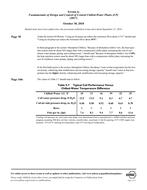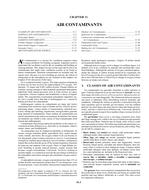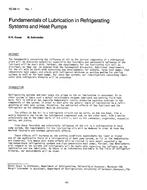The intended operation of atrium smoke management systems depends on the formation of a plume above the fire to take the smoke upward. Current design guidance sets a maximum make-up air velocity of 200 fpm (1 m/s) to prevent disruption of the plume. Many designers have stated that meeting the 200 fpm requirement is often costly and presents a hardship. The value is inadequately described in that it is not specific about the location of the velocity limit relative to the plume. Providing for adequate smoke exhaust is generally not difficult for atrium systems. Often, the greater challenge is how to achieve the required make-up air at a velocity of less than 200 fpm (1 m/s). If the criterion is inadequate, smoke control system failure could result, endangering persons and property. If the criterion is excessive, unnecessary costs would be incurred and an opportunity would exist to develop a new criterion that would be easier to meet and less expensive.
To study this phenomenon ASHRAE has initiated a project which was undertaken by Carleton University. For this project the Computational Fluid Dynamics Model Fire Dynamics Simulator (FDS) was used to model the conditions in the atrium in the event of a fire for different atrium sizes, make-up air velocities and fire sizes. The predictions of the model were used to determine the impact of the make-up air velocity on the fire plume and the interface height. FDS was also used to model the impact of wind on flames and compare the results to correlations found in the literature and also to determine the impact of the relative height of the opening for the make-up air on the plume.
Product Details
- Published:
- 2007
- Number of Pages:
- 134
- File Size:
- 1 file , 9.2 MB
- Product Code(s):
- D-RP-1300


